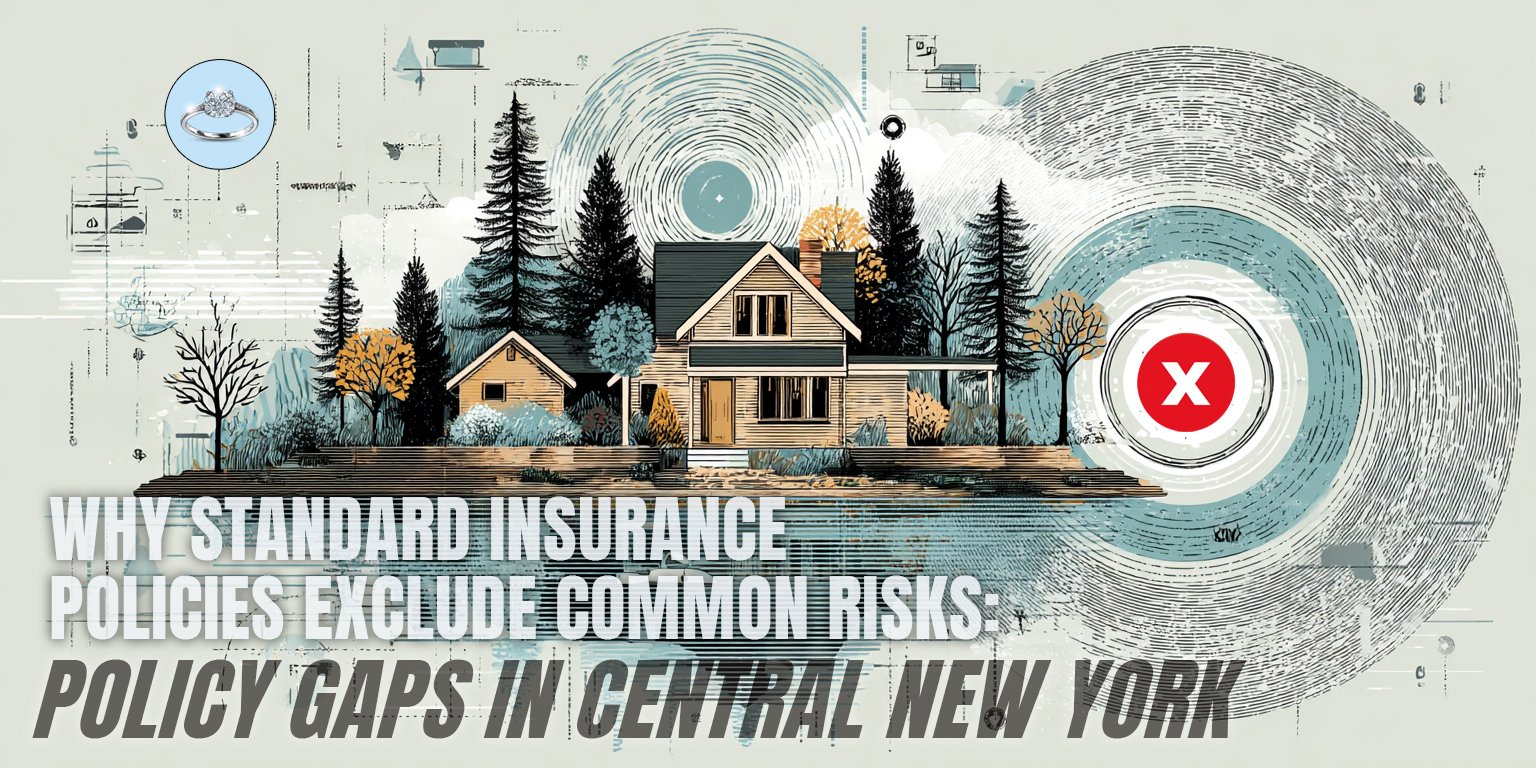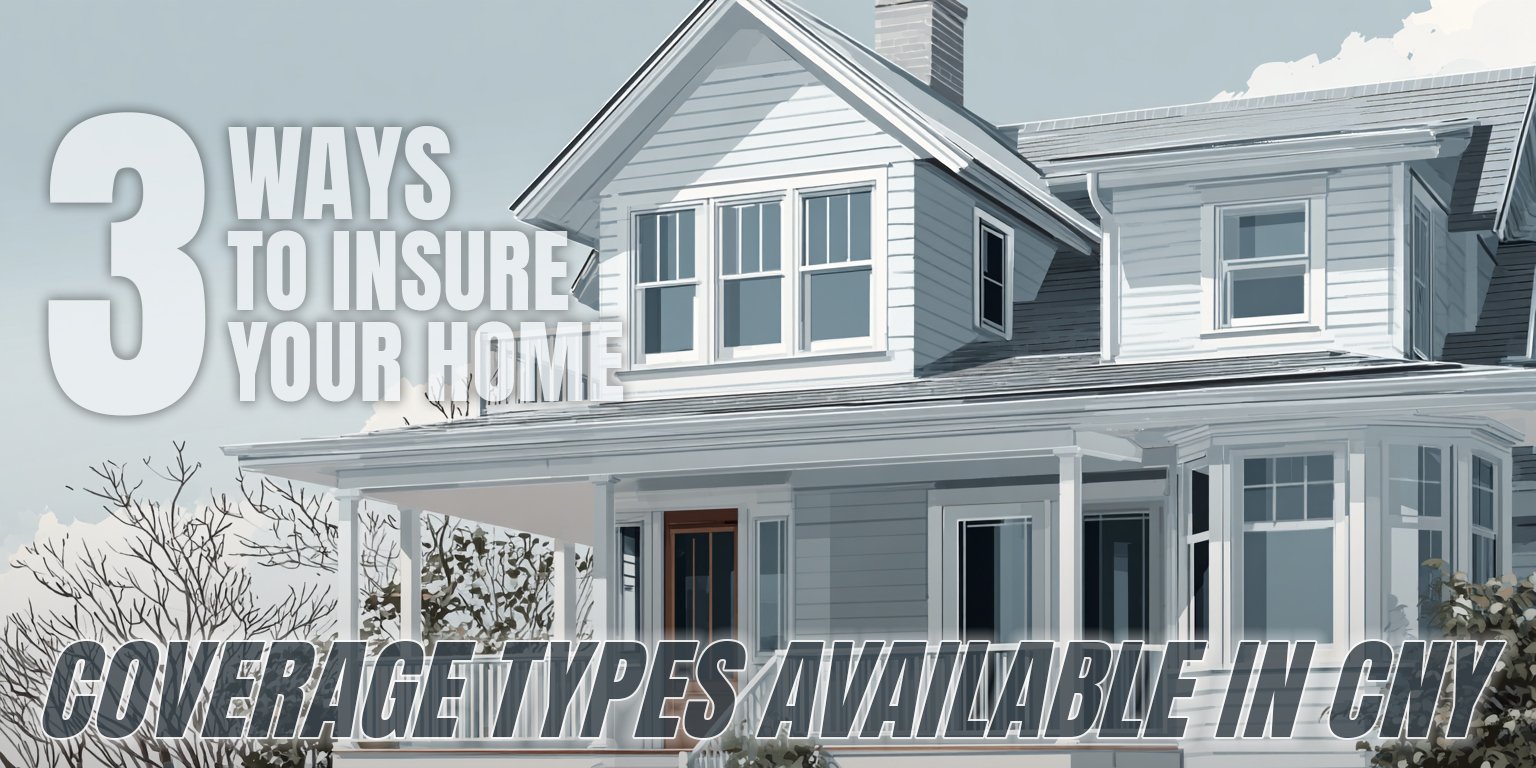Get Home Insurance: What Info Do You Need to Share?
August 8th, 2023
5 min read

If you’re a CNY resident looking for homeowners insurance, you might be wondering what kind of information you need to share to get a quote. You might also be curious about why the insurer needs to know certain details about you and your home.
After all, you’re not applying for a loan or a credit card, right?
Well, the truth is, homeowners insurance is more than just a simple contract between you and the insurance company. It’s a complex and dynamic relationship that involves assessing and managing risk, both for you and the insurer. And to do that effectively, the insurer needs to have a clear picture of who you are, what kind of home you have, and what kind of potential losses you might face.
That’s why we wrote this article to help you understand what information you need to have ready when you contact us for a quote and why we ask for it. We want to make the process as easy and transparent as possible for you so you can get the best coverage for your needs and budget.
The Horan insurance agency serves the CNY region, catering to people like you with tailored homeowners policies to meet their unique needs. Getting the proper coverage starts with providing the right information about your property and household.
So, here’s the information you’ll need to get a home policy quote.
Why the Insurance Company Needs Your Information
When seeking to purchase a home policy in Central New York, your insurance agent will ask you for information about yourself and your home. They do this on behalf of the insurer to assess the level of risk involved in insuring both the property and the owners.
You’ll answer questions that are common among different insurance companies, but some questions may vary slightly. The questions will cover both the physical features of the property and your personal details as the owner. Let’s start with:
Details About the Construction of Your Home
You’ll have to provide some details about how your home was built and what kind of materials and features it has. For example, you‘ll need to know
- the year of construction,
- the type of exterior (brick or wood), and
- the age and condition of the furnace, roof, wiring, and plumbing.
You’ll also need to know
- the size of your home,
- the number of bedrooms and bathrooms, and
- the type and size of your garage.
Other questions may include
- whether you have any fireplaces (and what kind),
- how they’re vented, and
- whether you have any other structures on your property (such as a shed or a fence).
You may also be asked about
- the flooring,
- countertops,
- fixtures in your kitchen and bathroom, and
- whether you have any decks, pools, trampolines, or diving boards.
These items can affect your liability risk and your coverage needs.
For more information on how these items can impact your insurance eligibility, read our article “Avoid Home Insurance Denial by Fixing These 7 Property Issues.”
The purpose of these questions is to help the insurance company estimate how much it would cost to rebuild your home in case of a total loss. Having this information ready will speed up the quoting process and ensure accuracy.
Your Personal Information
Earlier in this article, we mentioned that the insurance company needs information about both you and your home. You already learned what they need to know about your home, but what about you? Many times, info about you starts with:
Your Insurance History
One of the most important things an agent will ask you is about your past experience as a homeowner and whether you’ve filed any claims before. This is because your claim history can indicate how likely you are to file a claim in the future.
A home with an old roof or outdated systems can pose a higher risk to the insurer, but so can a homeowner with a history of frequent or large claims.
This doesn’t mean you should avoid filing a claim when you need to. It means that you should be aware that your claim history can affect your insurance rates and eligibility. If you have a history of few or no claims, you may qualify for discounts or lower rates. If you have a history of many or severe claims, you may face higher rates or difficulty finding coverage.
Info About Your Household Members
Another thing we’ll ask you is who will live in the home with you. This is because different household members can have different impacts on your insurance needs and risks. For example, if you live with your spouse, children, and mother-in-law, that is perfectly normal and acceptable.
But if you plan to rent out the house or part of it to someone else, you’ll need a different type of policy called landlord insurance. Learn more about that policy by reading our article explaining why landlord insurance is essential for rental property owners in Central New York.
Your Identity and Credit History
We’ll also ask you for some basic personal information, such as your current address (if different from the home you’re insuring), your date of birth, and your social security number. We need this information for two reasons:
- to verify that you are who you say you are so the carrier is insuring the right person
- to check your credit history (soft pull)
You might wonder why the carrier needs to check your credit history when you’re not applying for a loan or a credit card. The reason is that insurance companies have found that there is a correlation between credit history and insurance risk.
People with stable and responsible credit histories tend to be less likely to file claims or engage in fraudulent activities.
This doesn’t mean your credit history alone will determine your insurance rates or eligibility. It’s just one of many factors that insurance companies consider when evaluating your risk profile.
Different companies may also weigh this factor differently or use alternate scoring models. Your credit history is not a deal breaker in either direction. It’s just another piece of information the carrier needs from you. And don’t worry. This is a “soft credit pull” that doesn’t affect your credit score.
Details on What Kind of Protection You Need
This section has many factors to consider so we won’t go into too much detail here. The main thing to remember is that you should look for a homeowners insurance policy that meets your needs. You also want to make sure that each company offers the same level of protection.
We mentioned earlier that the standard homeowners policy covers the replacement cost of the structure and the personal property. Please verify that this is true for each quote you get.
A policy that pays the actual cash value might be cheaper than a replacement cost policy, but it will cover much less. You can find out more about the differences in our comprehensive homeowners insurance article.
Make sure you compare quotes correctly and that each quote has the protection you need.
Get the Best Coverage By Providing Accurate and Complete Information
We hope this article has helped you understand what information you need to get a homeowners insurance quote and why it matters. By providing accurate and complete information, you can get the best coverage for your home and your family.
You can also avoid any surprises or delays in the event of a claim.
At Horan, we care about our CNY clients and their homes. We know that your home is more than just a building. It’s where you create memories, raise your kids, and enjoy life. That’s why we want to protect it with the right insurance policy.
If you’re ready to get a quote, click the Get a Quote button below and let us help you find the best option for your needs and budget.
We’ll ask you some questions, but we’ll also listen to your concerns and answer any questions you have. We’ll make the process easy and hassle-free for you.
Now that you know what to have on hand to get a homeowners insurance quote, learn about the top five riders to add to your policy for more complete protection.
Daniel is an accomplished content creator. He has been working in publishing for almost two decades. Horan Companies hired Daniel as its content manager in November 2022. The agency entrusted its messaging to him. Since then, Daniel has written insurance articles, service pages, PDF guides, and more. All in an effort to educate CNY readers. He's helping them understand the world of insurance so they can make informed decisions.
Topics:





























